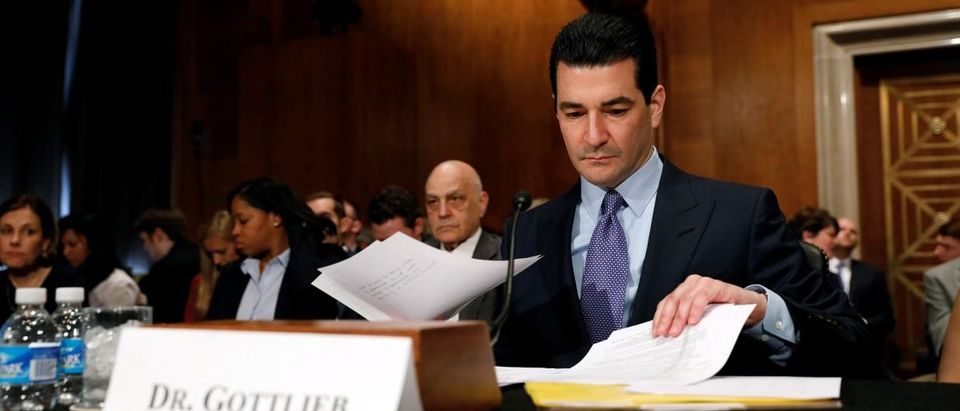In his prepared remarks for a Congressional hearing this week, FDA Commissioner Scott Gottlieb sought to draw a distinction between opioid dependence and addiction. According to the definition of addiction he sketched, nicotine and tobacco products are not addictive. This flatly contradicts the recent deluge of claims by FDA that these are addictive, claims that are central to FDA’s top tobacco policy priorities.
Assertions that nicotine or specific tobacco products are addictive are common in anti-tobacco rhetoric. They are presented as if “addictive” has some established scientific or medical definition, but it does not. Indeed, it is fairly clear that there is no candidate definition that includes nicotine or cigarettes without also including a large portion of all consumption choices. Tobacco controllers get away with pretending this is not the case by simply using the word without ever attempting to define it.
But the FDA has the dilemma of needing to also talk about opioids. In particular, they face the challenge of defending the agency’s authorization of opioid sales and marketing in response to widespread concern about the “opioid crisis.” That led Gottlieb to say this at the House Committee on Energy and Commerce hearings on that crisis:
Because of the biology of the human body, everyone [sic] who uses opioids for any length of time develops a physical dependence – meaning there are withdrawal symptoms after the use stops… That’s very different than being addicted.
Addiction requires the continued use of opioids despite harmful consequences. Addiction involves a psychological craving above and beyond a physical dependence.
Someone who neglects his family, has trouble holding a job, or commits crimes to obtain opioids has an addiction.
But someone who is physically dependent on opioids as a result of the treatment of pain but who is not craving more or harming themselves or others is not addicted.
The requirement that someone suffer from serious social dysfunction is a paraphrase of the National Institute on Drug Abuse’s definition of addiction, which is the closest thing that exists to an official definition. While it is not a perfect definition, it does a reasonable job of drawing a line between drug use in general and the life-destroying compulsion that is generally agreed to be addiction. But the social dysfunction requirement clearly excludes nicotine use, in general and for any particular product including cigarettes. Consuming these products does not impair someone’s functioning in society (indeed, it often improves it).
NIDA’s semi-official definition of addiction has always been at odds with assertions from tobacco controllers, including the FDA. But now the FDA has explicitly endorsed that definition. These were not Gottlieb’s extemporaneous remarks in response to questions, where the exact wording could be attributed to sloppiness. This was the prepared statement that was carefully crafted and vetted by FDA personnel, and released in written form by FDA.
Lest the above statement leave some ambiguity about the embarrassment this creates for FDA’s anti-nicotine rhetoric, Gottlieb went on to say:
Here’s the bottom line:
We should not consider people who hold jobs, re-engage with their families, and regain control over their lives through treatment that uses medications to be addicted.
In endeavoring to make sure that FDA-approved use of drugs to manage opioid dependence was not considered addiction, he effectively declared that using low-risk nicotine products to deal with the effects of having used cigarettes is not addiction. That, according to his position, would not be addiction even if addiction could be defined to include smoking.
FDA would probably attempt to defend its claims about tobacco products being addictive by appealing to the “use…despite harmful consequences” phrasing in the first quoted passage. But that oft-repeated attempt to define “addiction” is a complete failure. Literally every consumption choice has some harmful consequences. Particular consequences need to be specified, as in the NIDA definition that Gottlieb paraphrased.
It would be possible to gerrymander “harmful consequences” to include smoking but exclude most consumption choices, since the health risk from smoking is high (though it would be difficult to exclude other high-risk choices such as driving for a living or mountain climbing). But there is no conceivable way to include vaping or smokeless tobacco use.
FDA’s tobacco policy discussions lean heavily on the word “addictive” without ever defining it. The agency has acted as if it were just another anti-tobacco propagandist, rather than a proper regulator that needs to make sure its positions are well-defined. This has always been a vulnerability that could be used to challenge FDA policies, though it has barely been exploited. Perhaps this endorsement of a definition that excludes tobacco products will motivate some efforts to do so.


